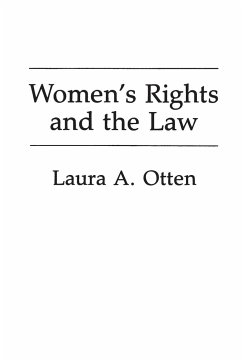
A History of the Anglo-American Common Law of Contract
Versandkostenfrei!
Versandfertig in 1-2 Wochen
135,99 €
inkl. MwSt.

PAYBACK Punkte
68 °P sammeln!
This is the first booklength survey of the Anglo-American common law contract over its 800-year history, from genesis in 12th-century England to the present form in contemporary America. The volume presents a technically accurate yet readable analysis that focuses on how the form assumed by contract law was tempered by the reasoning of lawyers and judges, and procedural, economic, intellectual and social considerations throughout the period. Of perennial interest to lawyers is the changing nature of law and how a sophisticated legal system allows that change. Teeven suggests that contract law ...
This is the first booklength survey of the Anglo-American common law contract over its 800-year history, from genesis in 12th-century England to the present form in contemporary America. The volume presents a technically accurate yet readable analysis that focuses on how the form assumed by contract law was tempered by the reasoning of lawyers and judges, and procedural, economic, intellectual and social considerations throughout the period. Of perennial interest to lawyers is the changing nature of law and how a sophisticated legal system allows that change. Teeven suggests that contract law is an ideal focus for studying the evolution of common law because it is a microcosm of the process of the development of common law. Early chapters study how the Plantagenet royal courts rationalized the use of a trespassory action to fill a void in the actions available to plaintiffs for contract enforcement and analyze how the law of proof influenced contract law's evolution. Teeven assesses the influence of law merchant on contract law as reflected in the decisions of Lord Mansfield and the case law of Colonial America, and he surveys the reception of English contract law by the American colonies. Later chapters consider the American form of contract law of the 19th century and discuss the influence on contract law of the burgeoning merchant class. The last two chapters analyze 20th-century modernization of contract law in the context of an urban, industrialized society; reviews public policy, consumerism, and codification; and poses questions about the future direction of contract law. Containing essential source material within the arguments of lawyers for plaintiffs and defendants and the logic of common law judges, A History of the Anglo-American Common Law of Contract is an important resource for legal historians and other researchers, and for practicing lawyers and law students, both English and American.












